In a candid and forceful interview on CTV’s Question Period, India’s High Commissioner to Canada, Sanjay Kumar Verma, staunchly denied any involvement by himself or the Indian government in the murder of Canadian Sikh leader Hardeep Singh Nijjar, describing the allegations as “politically motivated” and claiming that no evidence has been presented to substantiate the accusations. His remarks come amidst a diplomatic standoff between India and Canada, with the expulsion of diplomats from both countries and growing tensions over the case, which has put a significant strain on their bilateral relations.
Nijjar, a Canadian Sikh leader and prominent advocate for the Khalistan movement, which seeks an independent Sikh state in India’s Punjab region, was shot and killed in British Columbia in June 2023. Since his death, Prime Minister Justin Trudeau has publicly stated there are “credible allegations” linking agents of the Indian government to the murder, a claim that has further soured relations between the two countries. Verma, however, denied any involvement and expressed frustration over what he characterized as a lack of transparency and communication from Canadian authorities.
In his interview with Question Period host Vassy Kapelos, Verma was asked directly whether he or the Indian government played any role in the killing of Nijjar. Verma responded unequivocally: “Nothing at all,” he said, maintaining that no evidence has been shared with India to support the allegations. “No evidence presented. Politically motivated,” Verma reiterated, emphasizing that without proof, the allegations were baseless.
The High Commissioner went on to criticize the Canadian government for failing to follow proper legal protocols, accusing it of politicizing the issue without first providing concrete evidence. “As far as I’m concerned, she [Canadian Foreign Affairs Minister Melanie Joly] has got nothing in her hand,” Verma said, responding to Kapelos’ reference to Joly’s statement that the decision to expel Indian diplomats was made after gathering “ample, clear and concrete evidence” from the RCMP.
Verma repeatedly called for evidence to be shared with Indian authorities, claiming that despite repeated requests over the past year, no substantive information had been provided by Canadian officials. “We are a country of rule of law, and so is Canada,” he said, arguing that any evidence acceptable in a Canadian court would also be acceptable in India. “Show me the concrete evidence,” Verma urged, stressing that India’s position has been one of wanting clarity and cooperation but receiving nothing in return.
The High Commissioner further dismissed Canada’s claim that Indian officials refused to engage with the RCMP and federal authorities when they attempted to present evidence earlier this month. According to Verma, procedural issues, including a lack of proper visas and unclear communication regarding the agenda for the meeting, hindered any potential discussions. “They knew that the visa cannot be issued in half an hour to an hour, and therefore they did it,” Verma said, accusing Canadian officials of deliberately creating obstacles to avoid meaningful engagement. “It was largely technical,” he added, refuting claims that India had refused to cooperate.
The Indian diplomat also condemned Nijjar’s murder, calling it “wrong and bad” and emphasizing that he has consistently spoken out against the killing. However, he pushed back strongly on the narrative that the Indian government was involved, questioning why, if Canada had such compelling evidence, it had not pursued a legal case sooner. “If there is such compelling evidence, why haven’t they gone to the court of law so far?” Verma asked, pointing out that no formal charges have been brought forward in Canada linking Indian officials to the murder.
Verma’s comments reflect a broader frustration within the Indian government over how the situation has been handled. Since Prime Minister Trudeau’s explosive statement in the House of Commons accusing India of involvement in the killing, relations between the two countries have deteriorated rapidly. The diplomatic fallout has led to the expulsion of six Indian diplomats from Canada, including Verma, and a retaliatory move by India to expel six Canadian diplomats from New Delhi. Verma accused Trudeau’s government of acting without sufficient evidence, suggesting that domestic political considerations, including the desire to appeal to the Sikh diaspora in Canada, might have influenced the prime minister’s decision to make the accusations public.
When pressed by Kapelos on why India was not more eager to see the evidence presented, Verma pointed to the diplomatic process and the need for clear communication. “We have been asking for it for the last one year, which the RCMP has also said,” Verma stated, underscoring that India has been waiting for proof since the accusations first surfaced. He argued that Canada’s failure to share specific details or evidence left India in the dark, making it impossible for Indian officials to respond meaningfully or to address the accusations.
Kapelos also raised the issue of India’s alleged involvement in other cases of targeting Sikh activists abroad, including a foiled assassination plot against Sikh activist Gurpatwant Singh Pannun in New York. In that case, U.S. authorities have already brought charges against an Indian government employee. Verma, however, refused to draw any parallels between the U.S. case and the situation in Canada, noting that “indictment is not a conviction” and that the U.S. case is still following its judicial process. He rejected the notion that there was any connection between the two incidents, despite reports linking them.
Verma also took the opportunity to address accusations from the RCMP that Indian diplomats have been involved in coercing individuals and businesses in Canada to collect information on pro-Khalistan activists, calling these claims “overtly political” and without foundation. “I, as High Commissioner of India, have never done anything of that kind,” Verma stated firmly. He admitted that India has a strong interest in monitoring the activities of pro-Khalistan groups, which he described as “anti-India” and “terrorist elements,” but he insisted that all information gathering was done legally and transparently through public sources like newspapers and social media. “It is all overt. There is nothing covert,” Verma said, adding that India’s monitoring of Khalistani activities was a matter of national interest.
Throughout the interview, Verma remained firm in his assertion that the allegations against India were politically driven and lacked substantiation. He repeatedly emphasized India’s commitment to the rule of law and urged Canada to present credible evidence if it wants to move forward with any serious accusations. “We are the largest democracy in the world,” Verma said. “We are committed not to doing extrajudicial killings on any territory.”
Despite the serious nature of the accusations, Verma expressed hope that the broader relationship between Canada and India could recover. He emphasized that while the political relationship had become strained, other aspects of the bilateral relationship, such as trade, people-to-people ties, and cultural exchanges, remained strong. “Canada had been a friend of India. Canada will remain a friend of India,” Verma said, expressing optimism that non-political aspects of the relationship would continue to flourish despite the current tensions. However, he also cautioned that restoring trust between the two governments would require Canada to take India’s concerns seriously, particularly regarding the activities of pro-Khalistan elements in Canada, which Verma accused of trying to destabilize Indian sovereignty.
The interview ended on a note of uncertainty, with Verma suggesting that India would need to carefully consider its next steps in response to the diplomatic row, particularly regarding the replacement of the expelled diplomats. “It is a matter of conversation between the two governments,” Verma said, noting that India would evaluate its options based on the security and safety of its diplomats. “We’ll discuss it very carefully,” he added.
As Verma prepares to leave his post, his interview underscores the complexity of the current diplomatic crisis between Canada and India. While both sides have expressed a desire to maintain strong economic and cultural ties, the accusations of murder and covert operations have plunged the relationship into its most serious crisis in years, raising questions about whether trust between the two countries can be rebuilt anytime soon.


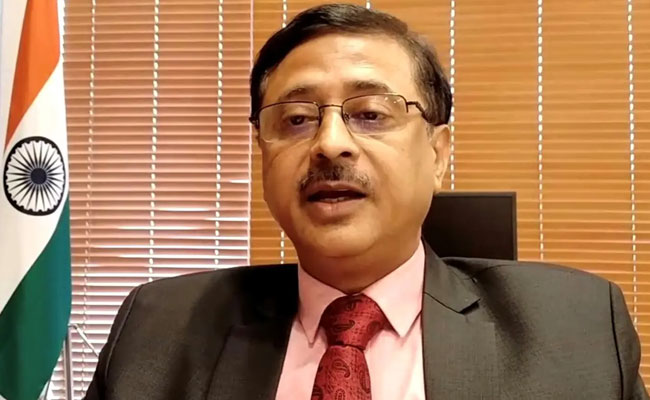





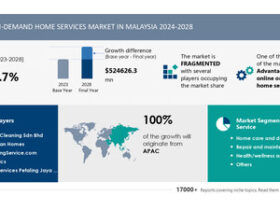


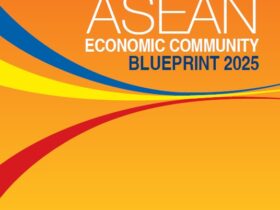
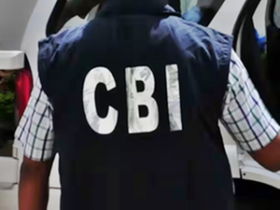
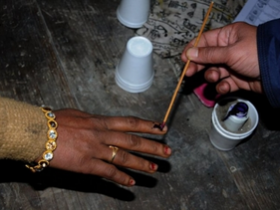
Leave a Reply